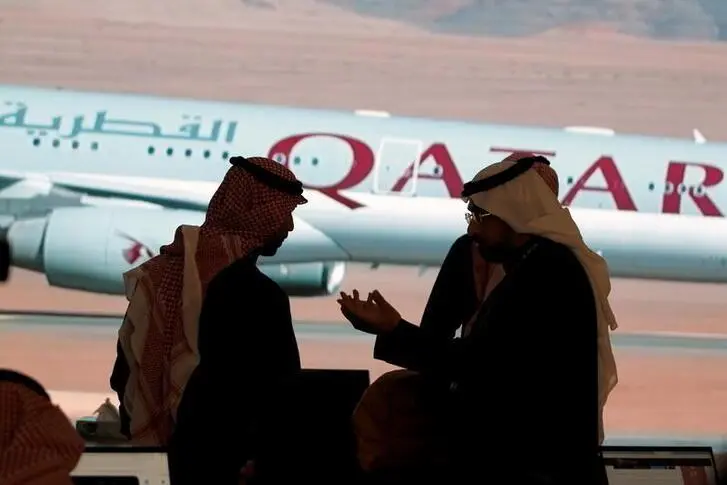PHOTO
The Gulf Cooperation Council (GCC) Summit in AlUla this week will surely be remembered as the summit of reunification. It will be recognized as the moment when the countries of the GCC finally turned the page on a crisis in the region that had gone on for three years. The supreme interest of the peoples of the council’s six member nations has prevailed and the process of cooperation has been relaunched, paving the way for a new future.
What distinguishes this entity — formed 41 years ago to counter challenges and threats to Gulf security and stability — has been its efforts to develop economies and foster cooperation in various other fields. There are ties that bind the GCC countries and link them together that are not found in other similar entities, or even among other Arab countries.
Working as a single system, therefore, the GCC countries can confront the urgency of the surrounding crises and take necessary actions and steps, despite their differences, to pursue the greater interests of all.
If we weigh the size of the challenges facing the GCC against the scale of the differences between its members, we find the challenges are greater. At the same time, the awareness of all GCC leaders has led them to rise above the problems of the past and put them aside as they work to realize the hopes and aspirations of their people. These are mainly based on advancing the pace of development, which is naturally tied to economic progress.
The circumstances the GCC countries find themselves in today include threats from Iran, including terrorism carried out by Tehran’s sectarian militias. This makes the political and security file the most pressing and the most important due to the potential consequences. This issue initially represented a point of disagreement and then came full circle to form the point of agreement after GCC members unanimously agreed to counter the challenges and threats.
These points were clearly stated by Saudi Crown Prince Mohammed bin Salman, who opened the summit on behalf of King Salman. The statement read out by him emphasized the importance of “Gulf, Arab and Islamic solidarity and stability, and strengthening the bonds of friendship and brotherhood between our countries and peoples in order to serve their hopes and aspirations. There is a need to unite our efforts to advance our region and confront the challenges that surround us, especially the threats posed by the Iranian regime’s nuclear program, its ballistic missile program, and its destructive sabotage projects that it and its proxies adopt through terrorist and sectarian activities which aim at destabilizing security and stability in the region.”
The GCC has always played many roles; the liberation of Kuwait in the 1990s after Saddam Hussein’s invasion is one example that clearly illustrates its joint work toward a common goal.
In the same way, the threat to Bahrain posed by militias supported by Tehran was confronted and halted. Had no action been taken, Manama would have been thrown into a downward spiral of chaos and devastation. Thanks however to the Peninsula Shield, which supported Bahrain, the efforts of Tehran’s saboteurs and militias were thwarted.
Today, too, the Arab Coalition — the strength of which comes from the Gulf, especially Saudi Arabia — is working to restore Yemeni legitimacy and return the country to its citizens after Iranian-backed Houthi militias hijacked and terrorized it.
The region remains in conflict. Tehran is on one side with its ideology of terror that exports malicious sectarian revolution, using terrorism and terrorist militias, as well as anything else it can, to destroy the region’s security and stability.
The other side is represented by the GCC countries that export wealth and aim to build economies that lead to prosperity. They support economic improvement and utilize every available means of development in a quest for projects, incomes and revenues that are not dependent only on oil, in an effort to achieve prosperity for all the people of the region.
The two sides — Iran and the GCC — are very different. One is linked to death, destruction and terrorism, while the other is linked to growth, prosperity and life. This simple fact is what made the leaders of the region realize that the destructive Iranian plans would destroy everyone and everything if the GCC is not united in its efforts.
The leaders must work together to close the files on the other disputes that Tehran fosters and benefits from. There is no doubt that after the AlUla Agreement, Tehran will find itself isolated and alone.
The GCC has united against Iran and acted to neutralize the danger and terror it promotes. This new action will see the region and its people blessed, and the member nations will enjoy security, stability and economic prosperity.
- Dr. Hamdan Al-Shehri is a political analyst and international relations scholar. Twitter: @drhamsher7
Copyright: Arab News © 2021 All rights reserved. Provided by SyndiGate Media Inc. (Syndigate.info).





















